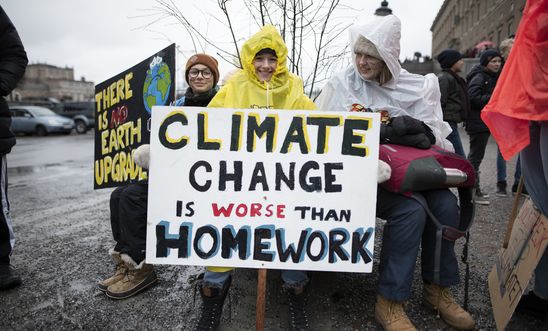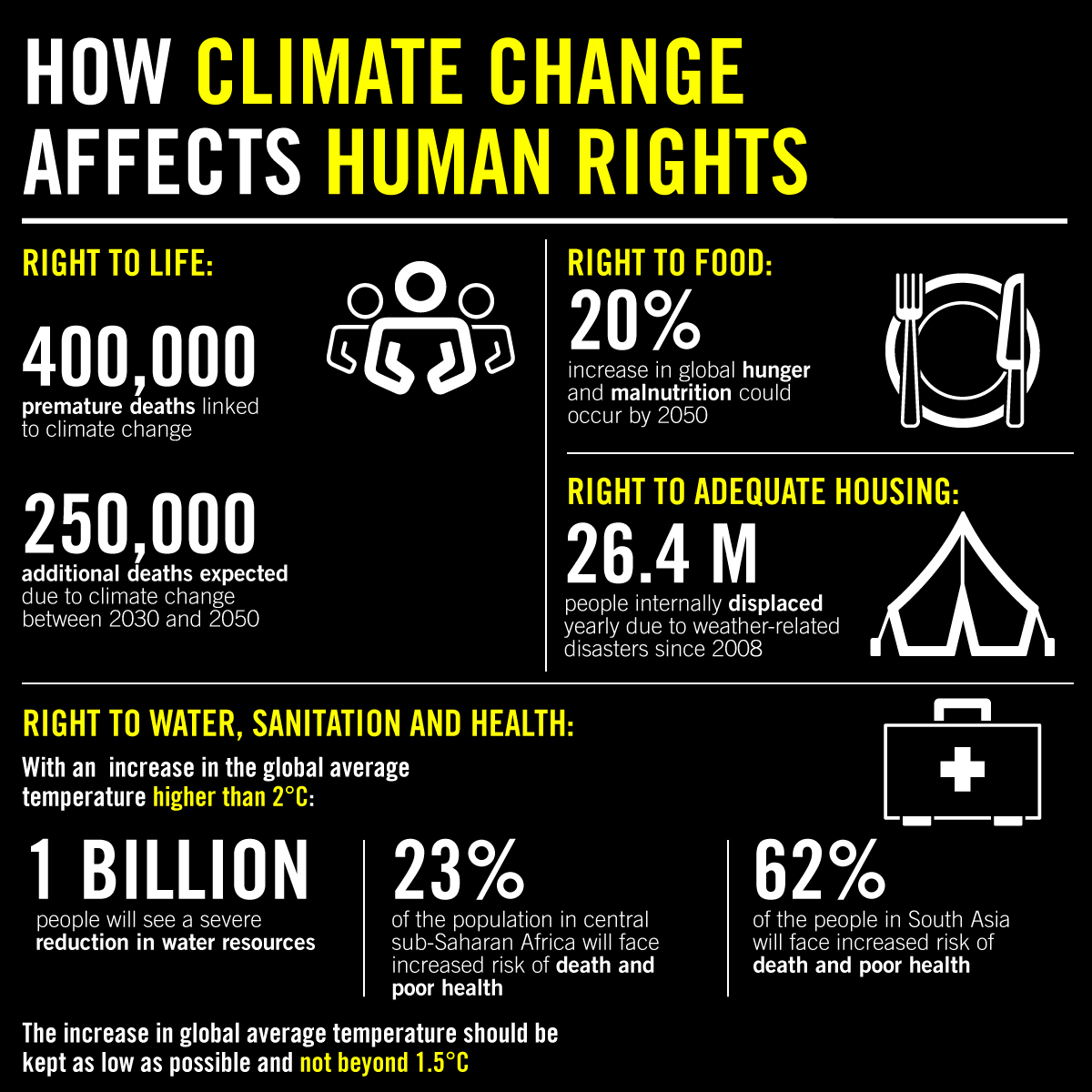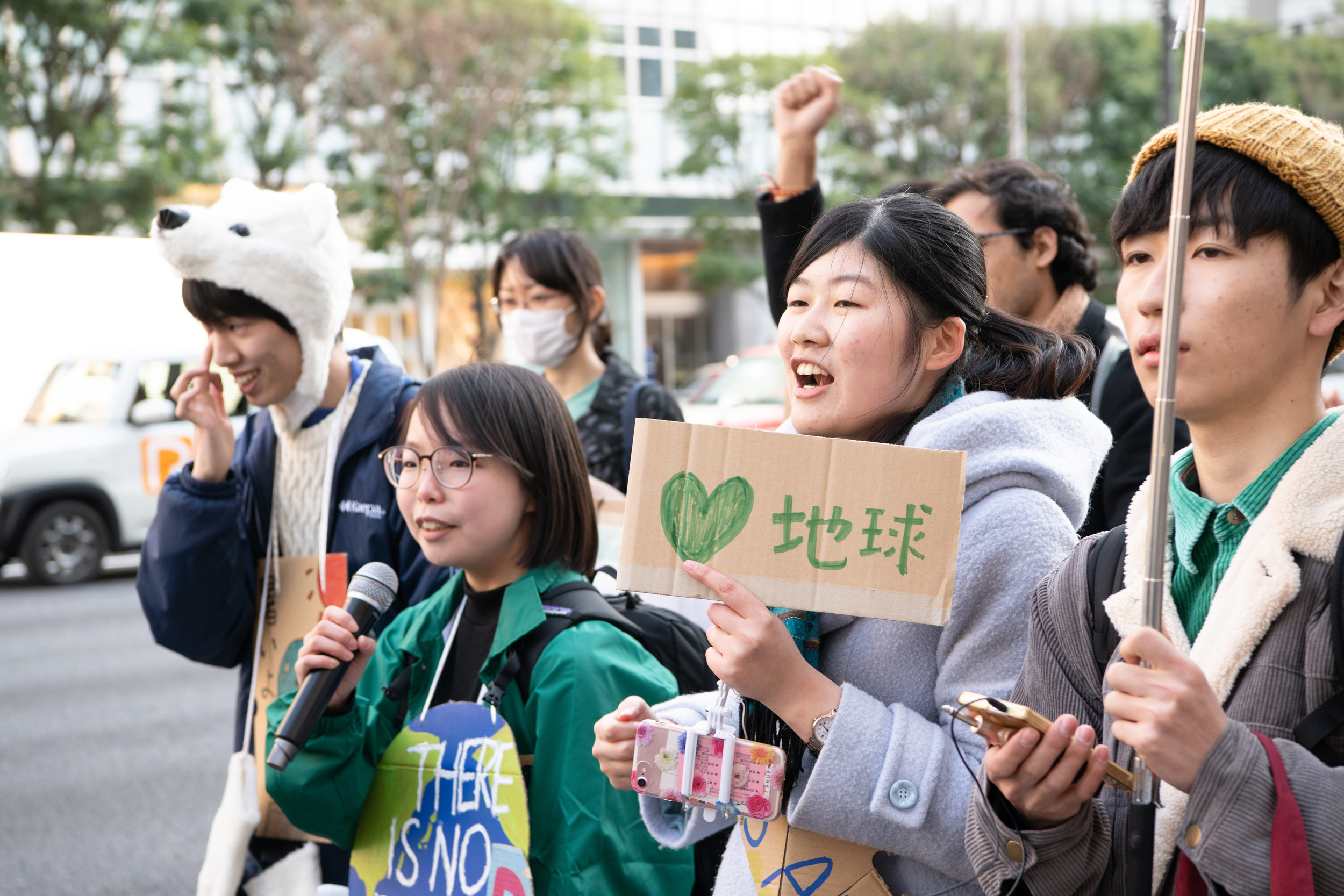
What has the climate crisis got to do with human rights?

Amnesty International is a movement of 7 million people worldwide who are here to protect human rights. We exist to make sure everyone and their rights are respected, protected and enjoyed.
But right now our world is in the midst of a climate emergency that’s threatening our future, which means our mission is under threat too. We can’t let that happen.
People created this crisis, and we have the power to fix it – we are all part of it and we need to start acting now.
No Planet. No People. No Human Rights.
The climate crisis threatens human survival and all human rights – to life, health, housing, water and sanitation.

The climate crisis deepens inequality by disproportionately affecting people already marginalised by poverty and discrimination – those who are least responsible for it:
- Less industrially developed countries: low lying, small island states, like the Marshall Islands, are already experiencing devastating flooding and storms, destroying their homes and livelihoods. While temperatures have risen to deadly levels across Europe, the worst effects have been felt in places like Pakistan, where more than 60 people died in 2018, as temperatures soared above 44°C.
- Poor and marginalised communities: those hardest hit in North America have been residents of poor communities of colour. Low-income communities are more likely to be located near power plants and refineries, forcing inhabitants to breathe toxic air, putting them at higher risk for respiratory illnesses and cancers. Because African Americans are more likely to reside in these communities they are three times more likely to die of airborne pollution than the general US population. Indigenous communities are also more likely to be located on land that is extremely sensitive to physical changes, making the possibility of displacement increasingly likely.
- The gender gap: in many countries in the world women and girls are more likely to be marginalised and disadvantaged. They have less stability and security in employment, and are more like to face food and housing insecurity. Indigenous women in Ecuador have faced a series of attacks and death threats for protecting their communities in the Amazon. Ecuadorian authorities have failed to provide protection.
- Young people and future generations: children and young people are already suffering from changes in their metabolism and physiology. They will face worsening conditions over time if governments do not act now.
This could become the biggest inter-generational human rights violation in history, but it’s not too late to make a stand.
Climate change will continue to harm all of us unless world governments take action. Together we have the power to push governments to create positive change for future generations.
What you can do:
Support the Global Climate Strike
In September, Greta Thunberg and other youth climate leaders asked you to join strikes all over the world – calling for governments to take urgent action to halt the climate crisis.
Mass demonstrations were organised globally, for people of all ages. Amnesty supports the Global Climate Strike and activists from across the movement who took to the streets.
Find out how you can strike for climate justice.

Amnesty is calling for governments to:
- Do everything they can to help stop the global temperature rising by more than 1.5°C.
- Reduce their greenhouse gas emissions to zero by 2050 at the latest. Richer countries should do this faster. By 2030, global emissions must be half as much as they were in 2010.
- Stop using fossil fuels (coal, oil and gas) as quickly as possible.
- Make sure that climate action is done in a way that does not violate anyone’s human rights, and reduces rather than increases inequality
- Make sure everyone, particularly those affected by climate change or the transition to a fossil-free economy, is properly informed about what is happening and is able to participate in decisions about their futures.
- Work together to fairly share the burden of climate change – richer countries must help others.